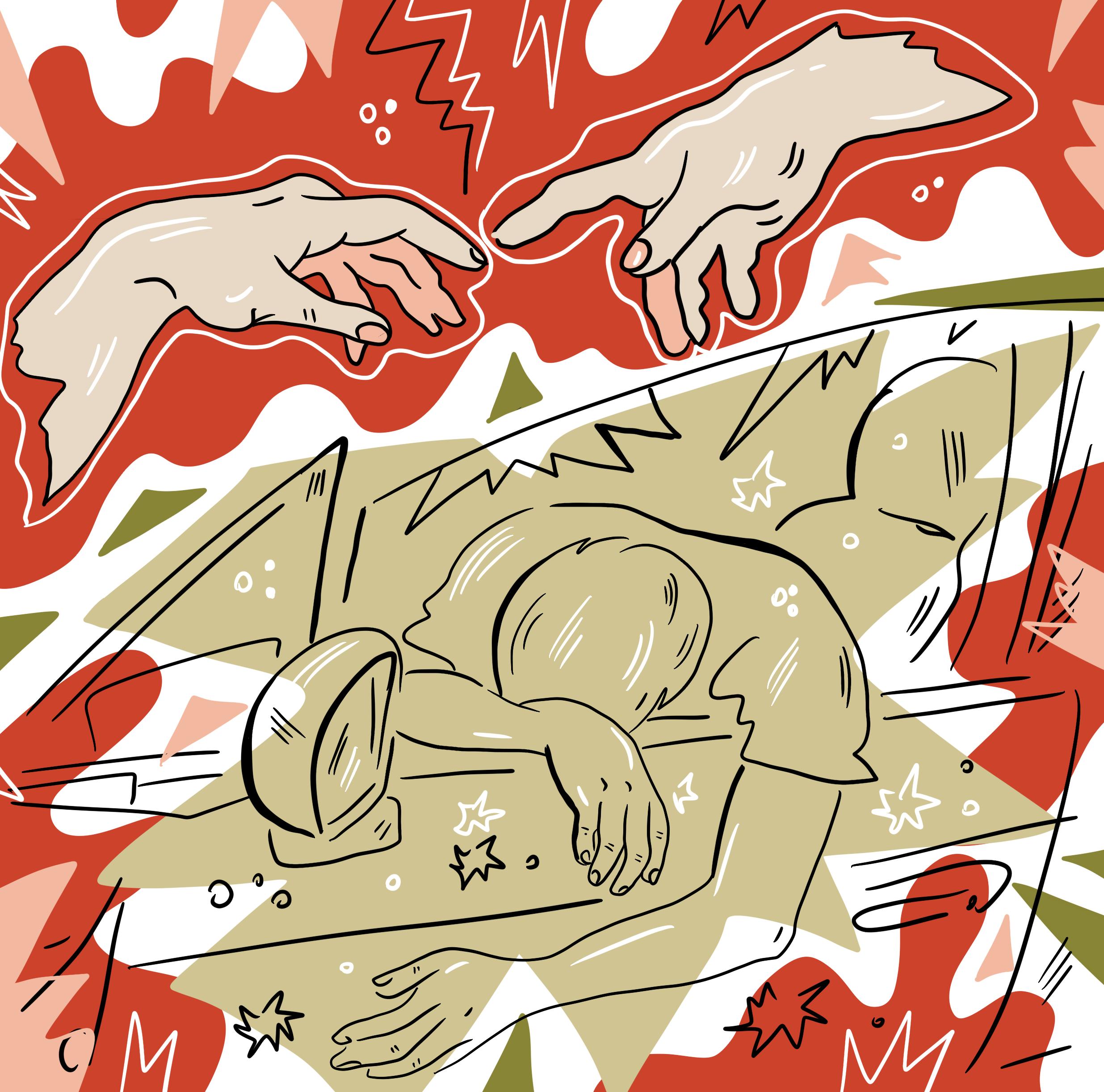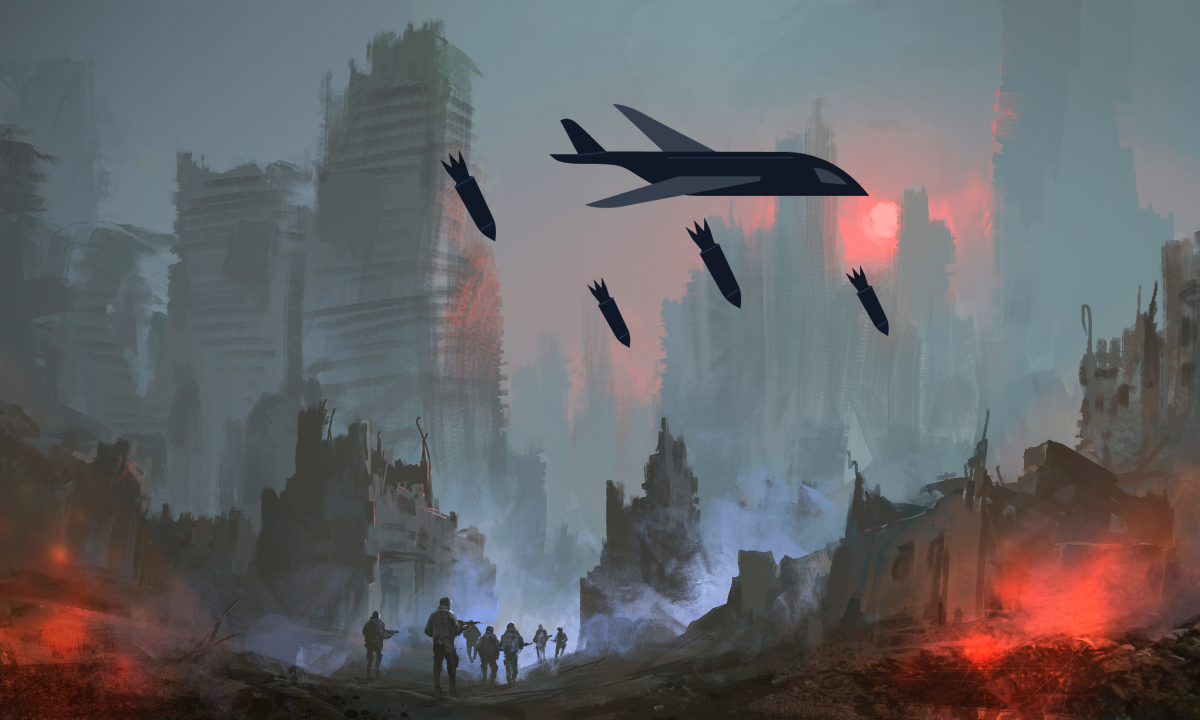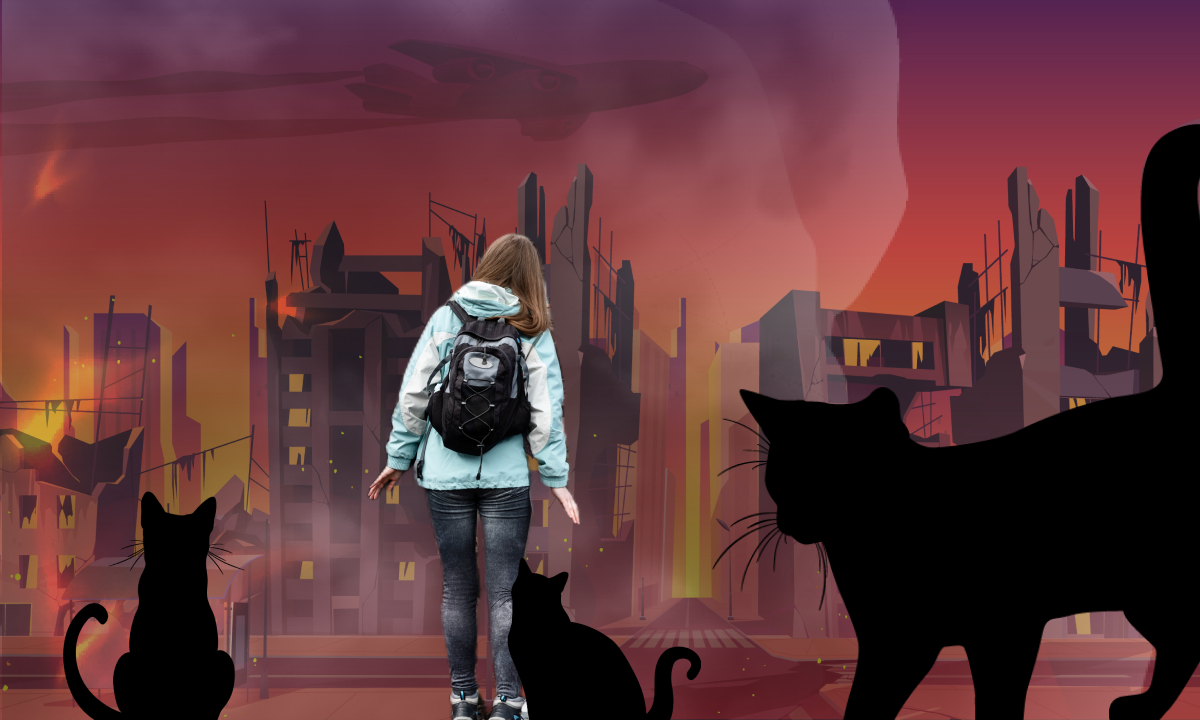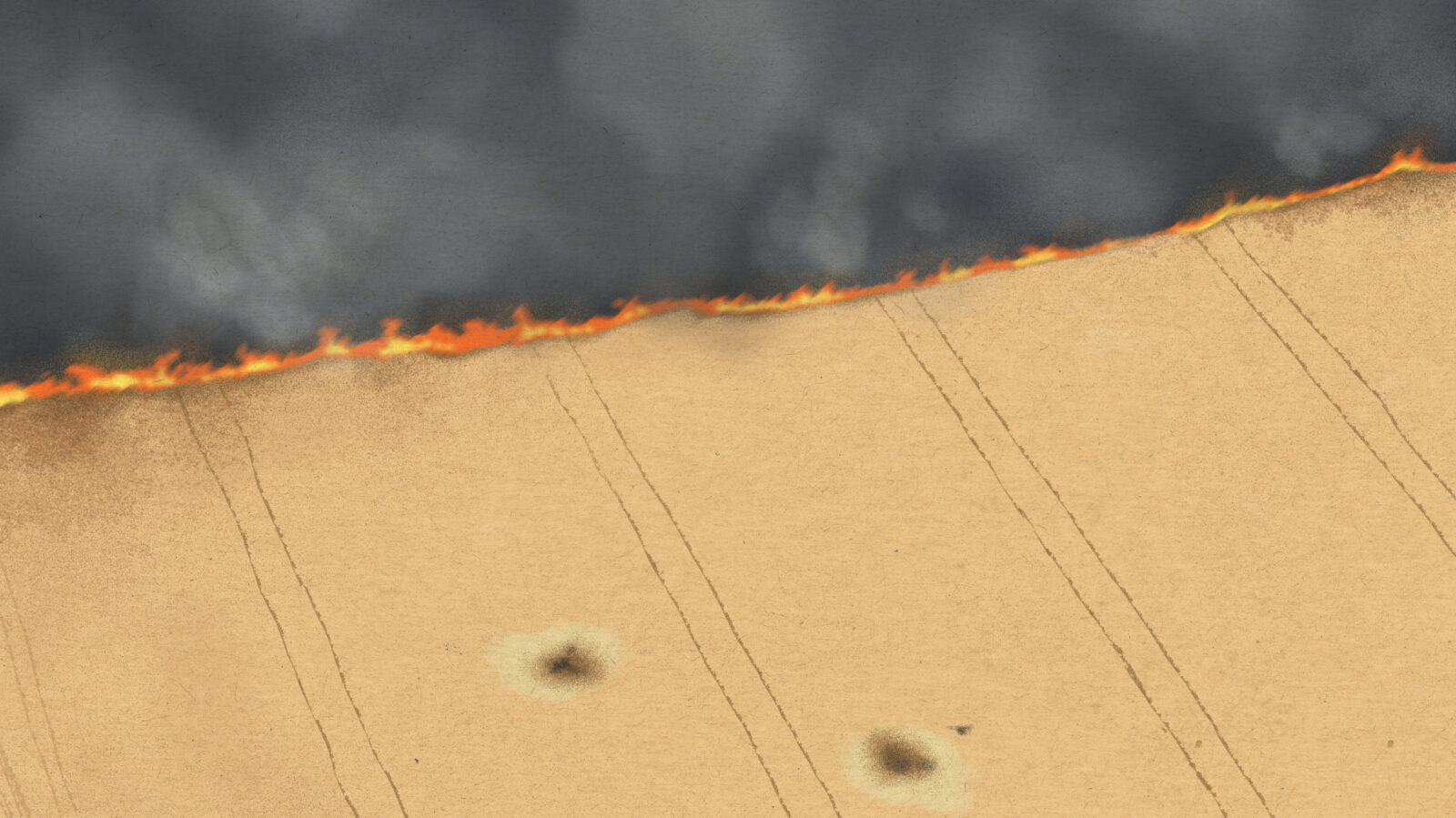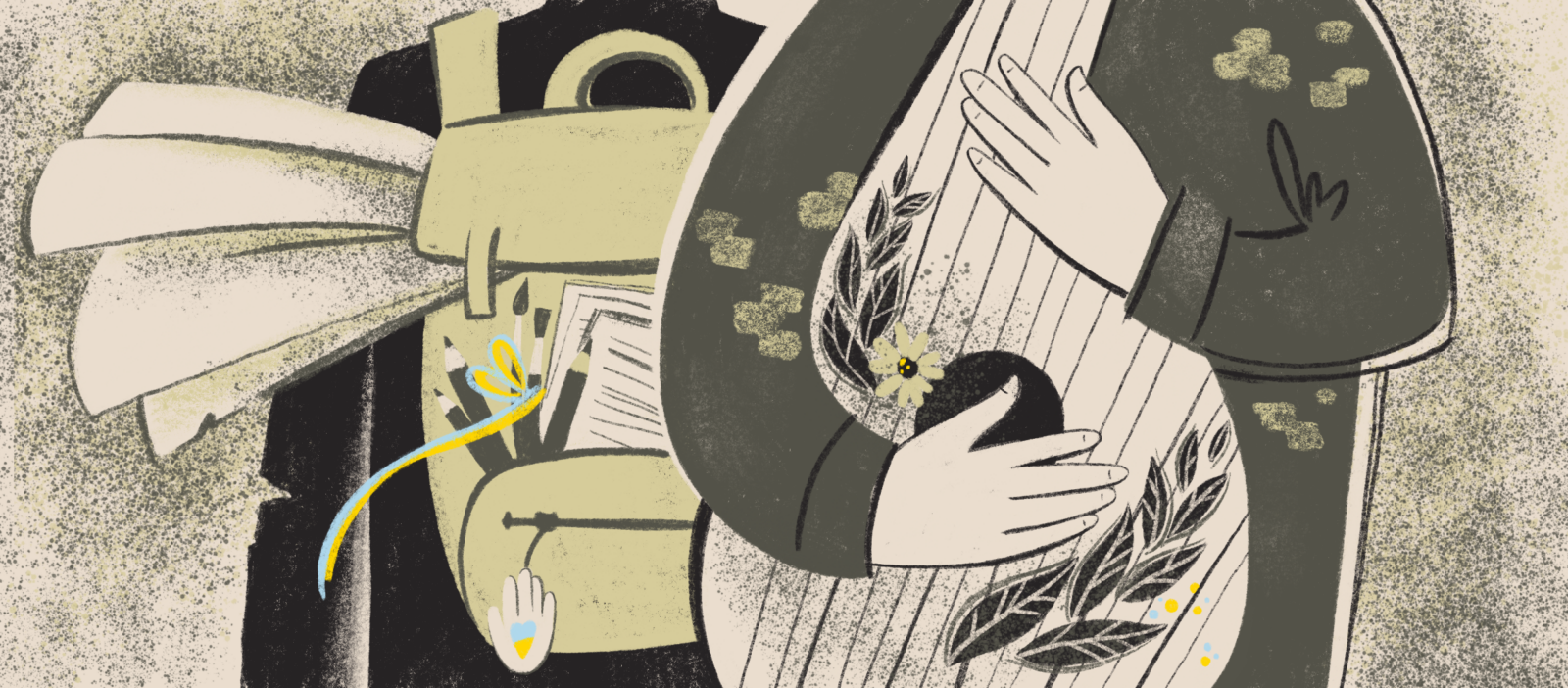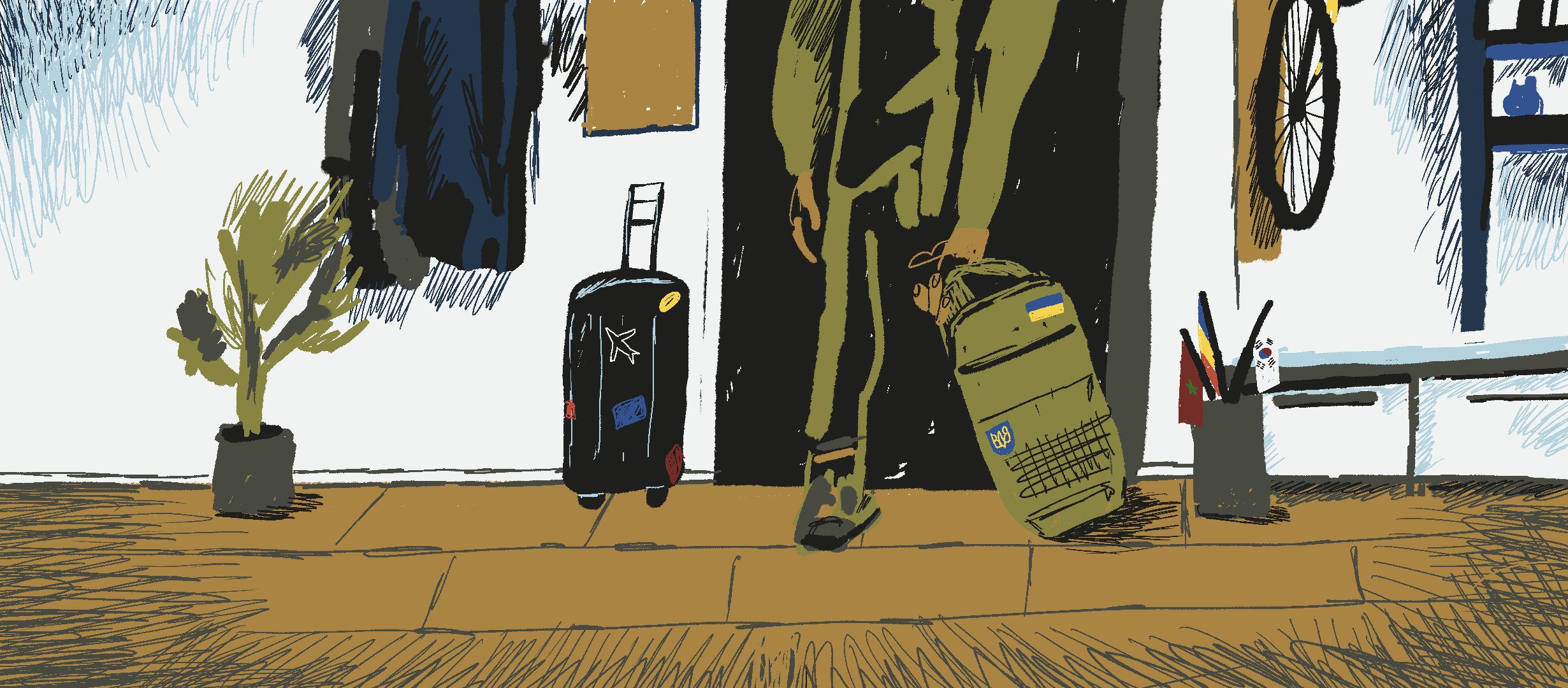Illustrated by Tanya Guschina
“I was driving. A Russian soldier ordered me in a very rude manner: ‘Get out!’ I snapped back: ‘I can’t,’ and pointed at my wheelchair in the car,” Ulyana Ptcholkina recalls how she, together with her husband and neighbors, were leaving Bucha, which became a battlefield at the beginning of March. “Around the town, corpses and parts of human bodies were scattered, in the cars were people shot dead. Ordinary civilians who were just trying to get to a safe place. Many bodies were collected by local people and buried in a mass grave near the church, but many were still left on the streets of Bucha. We just got lucky because we were in a line of cars that was so long, and we were left alive. Pure luck.”
Ulyana Pcholkina, 38, is a public figure, TV host, world champion in parakarate, the leader and board member of the NGO Group of Active Rehabilitation which takes care of people with spinal cord injuries who use wheelchairs. Ulyana got a spinal cord injury seventeen years ago, and since then she has had to use a wheelchair. Her husband Vitaliy also has a disability.
“When we heard about the large-scale war, I started writing to everyone who was concerned about people with disabilities. I asked: what shall we do? But no one had an answer. I remember the start of the war in Donbas in 2014: people with hearing problems were killed because they couldn’t hear sirens, which is why there should also be a light siren. People who couldn’t move died in their apartments. I remember how people in wheelchairs couldn’t hide, and mentaly ill people were not allowed in shelters. During the eight years of the war, we hadn’t worked out any plan to evacuate people with disabilities, and that is why everyone was confused…”
Ulyana and Vitaliy moved to their home in Bucha in 2015. They lived downtown in an apartment on the first floor which was built to be perfectly accessible and comfortable. On February 24, the couple was woken up by explossions: the Russians were bombing the Hostomel Airport five kilometers away. Since that first set of explosions, the bombing, gunfire, shelling went on non-stop.
“The moment the first Russian helicopters appeared, I was just standing on the balcony. The attackers flew over my head,” Ulyana recalls the first day of the Russian invasion into the Ukrainian territory.
Her husband and she decided to stay at home. They were hiding in the bathroom, because to get to the basement they would have to take narrow and steep stairs impossible for wheelchair users. “The first night, we slept sitting in the bathroom: for someone with an injury it was a real hell. Then we decided that we would sleep in our bed: if we get hit, we’ll get hit. We were sleeping fully clothed. We woke up early, and during the day I used to sleep in the bathroom with a pillow on the sink,” recalls Ulyana. “Our building is just near the Warsaw Highway. On February 27, a Russian tank hit the building. The shell got into our neighbor’s apartment on the fourth floor, the apartment was ruined and burning. Our balcony is not closed, and we could hear gunfire going on through it. We could hear the bullets hitting our walls. We could hear someone moan on our balcony that he was wounded.”
Gas and heating were turned off the first day, then electricity disappeared, too. Ulyana says that she and her husband survived only thanks to the care and attention of their neighbors. “We were all together, and that’s what saved us. We both couldn’t get any water or get to the shop, destroyed by bombs, for any food, we couldn’t get gas for our car. We would just starve to death,” she explains.
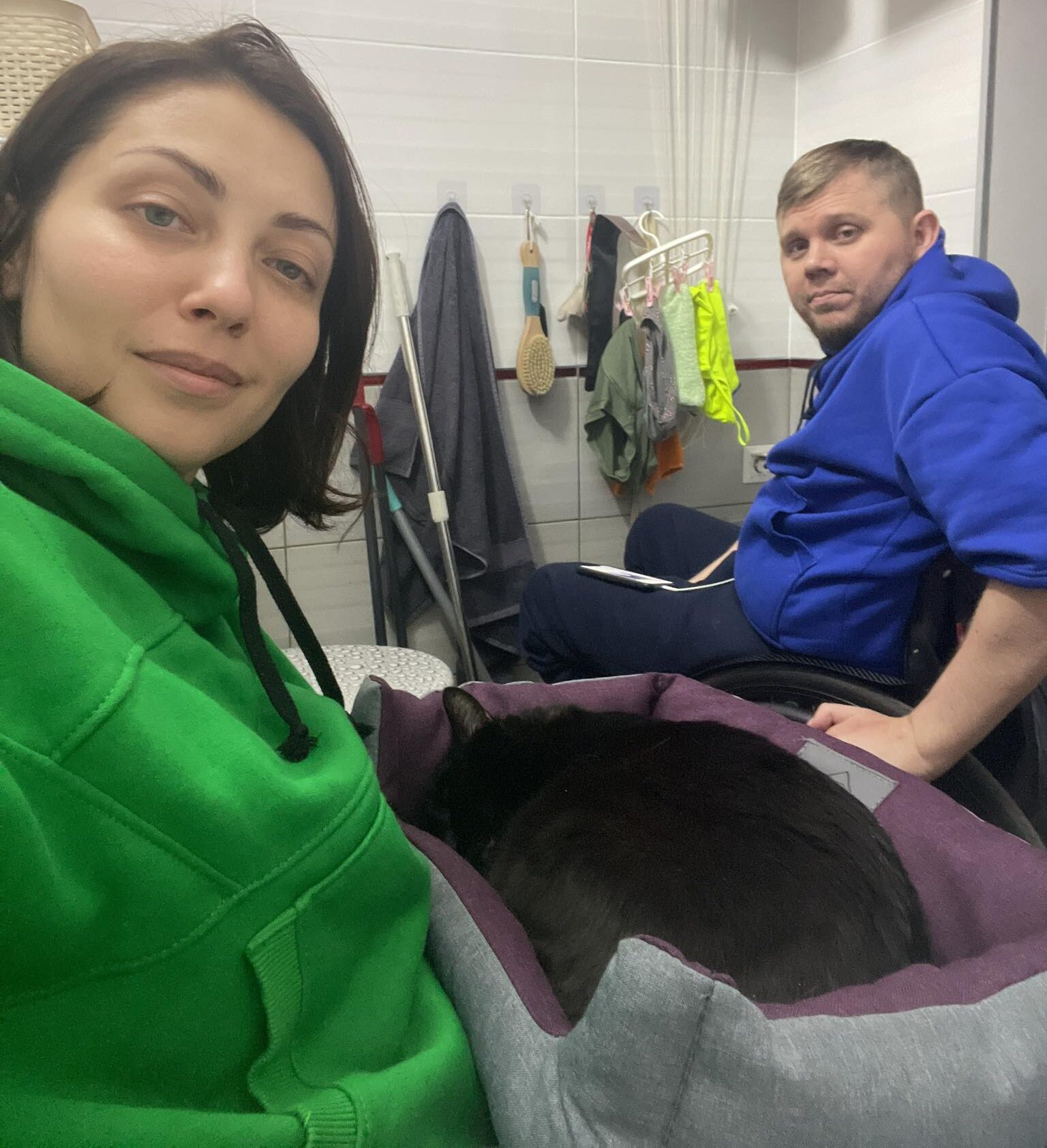
At the beginning of March, Ulyana and Vitaliy managed to leave Bucha. “It was announced that evacuation was possible, but Russians didn’t let the evacuation buses into the city. And then someone from our crowd just yelled, ‘Let’s go!’ How did we manage to pass? There were hundreds of cars. Russian soldiers just didn’t expect this, they stopped some cars and searched them, but not all of them, because the line of cars was so long,” says Ulyana.
The couple separated: Vitaliy got into a small van together with their neighbors, and Ulyana took another girl with a dog and a neighbor in her car.
“Everywhere in the city there were Russians, gunfire, sounds of automatic guns, explosions. We stood in the line of cars to get out of our yard. And at the same time, some kind of heavy Russian military vehicle, either a tank or an armored personnel carrier, I am not sure which, hit the five-storey building opposite from us. Russians were passing by, aiming at us. I raised my hands and was sitting like that in the car. I am not a religious person, but I started praying during this war. I was afraid for the people around me, for my husband. They aimed at us, but fortunately they didn’t shoot,” recalls Ulyana. “At numerous checkpoints, the Russians searched our cars: they looked for video registrators, checked videos and pictures on our phones—I’d destroyed everything before we started on the road. They looked for weapons.
We left Bucha before dusk and moved to Fastiv. We were driving on town roads, through villages, through minefields. My body was so tense that I could only relax on the third day of my stay in Lviv.”
Ulyana explains that people with disabilities are in more danger during wars, because they often can’t get to shelters, find food or evacuate at the first opportunity. “Excuse me, but even going to the bathroom on the road somewhere under the bridge or in the field is not an option. It’s a problem even in an apartment where it is impossible to get to the bathroom in a wheelchair.”
“It was extremely difficult to say goodbye to our home. But you can get all the stuff back. The main thing now is to survive and stay mentaly stable. All the rest will be later, after our victory.”
Date of recording: March 17, 2022
Translated bу Oksana Mekheda

